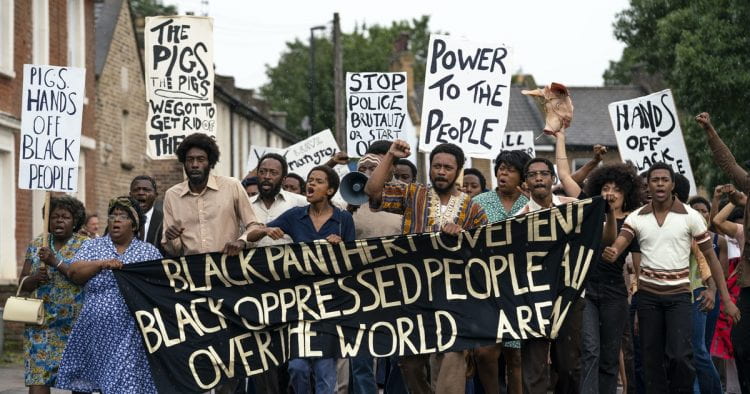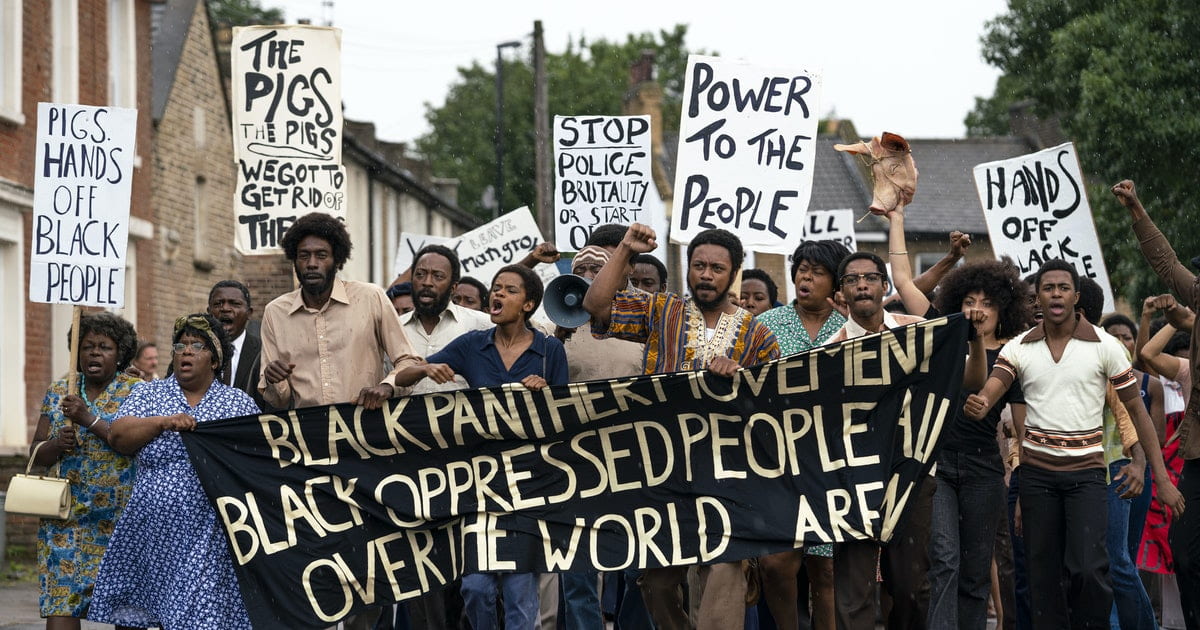The Trial of the Mangrove Nine
In March 1968 Trinidadian Frank Crichlow opened his restaurant ‘The Mangrove’ in Notting Hill. At that time Notting Hill held most of London’s Caribbean population, becoming one of the city’s more international districts. With the Windrush generation arriving between 1948 to 1971, local residents feared newcomers would take their housing. Therefore, racial tensions were high and the Caribbean community endured great hostility. Many were denied jobs and housing, and 11 Members of Parliament formally complained about the influx of immigrants.
The Mangrove restaurant became the centre of the black community and attracted musicians and activists such as Bob Marley and Diana Ross. However, it soon became a target for the police. The Mangrove’s alcohol license was removed and they were forced to serve certain items dissimilar to their traditional cuisine. Between January 1969 and July 1970, the restaurant was raided 12 times. Each time the restaurant was raided, the police found nothing.
Crichlow sought help from the anti-racist British Black Panther group, who monitored officers’ behaviour and challenged police brutality. They set up a committee to protect the Mangrove and organised a protest against the police. They wrote to the prime minister Edward Heath saying: “We feel this protest is necessary as all other methods have failed to bring about any change in the manner the police have chosen to deal with Black People.” However, what was intended as a peaceful protest soon turned violent when the 150 protestors were met by 500 police officers.
Nine protestors were arrested, including Crichlow and, the leading black panther, Anthea Jones. They became known as the Mangrove Nine. They were charged with 39 offences in total, primarily inciting riot and affray, to which their sentence would’ve been several years in prison. The case was taken to the Old Bailey, where the most dangerous and severe offences were put to trial, as a form of intimidation.
During the trial a request for an all-black jury was put forward, on the basis that since the Magna Carta the law has stated that a man should be tried by his peers or equals, with a black jury eliminating any prejudice against the defendants. This request was denied, however after rejecting 63 candidate jurors the trial took place with two black jurors out of twelve.
The trial lasted for 55 days, and after a jury deliberation of eight hours, they were all acquitted of the main charge of inciting riot.
The Mangrove restaurant and its owner continued to be harassed for a further eighteen years. In total, Crichlow faced three trials and was acquitted three times. In 1989 his name was finally cleared at the High Court. He accepted a settlement of £50,000, which was the highest sum ever paid in damages by the Metropolitan police at that time. He pressed for an apology from the police but never received one. Crichlow closed the Mangrove for good in 1992.
This trial was so significant because at the end of it the Judge stated that: “there [was] evidence of racial hatred on both sides”. This was the first judicial acknowledgement of entrenched racism in the metropolitan police and instigated taking on the legal establishment for many more civil rights activists.
Steve McQueen’s film Mangrove from his anthology of educational films ‘Small Axe’ brings the trial to life and vividly depicts the vibrant West Indian community surviving amidst the appalling racism of the police and the justice system which endorsed them. I would highly recommend these films as well as the Small Axe podcast which delves deeper into the themes and issues addressed (on BBC iPlayer and BBC Sounds).
The staggering similarities to the shocking treatment of civil rights protestors and institutional racism that the Mangrove Nine experienced in the 70s to those at the 1992 LA Riots and the BLM protests of last year. The Mangrove Nine’s trial serves as an example of hope, but yet another frightening reminder of how little things have changed in the past 50 years.
Here is a quote I’d like to conclude with, from Darcus Howe in McQueen’s film: “A policeman who framed a black man, is doing so with the confidence that the system is going to give him conviction. And a section of the community who one must call the most alienated, either are going to turn to crime in that they are going to be arrested or seek their revenge against the society in another form.”



